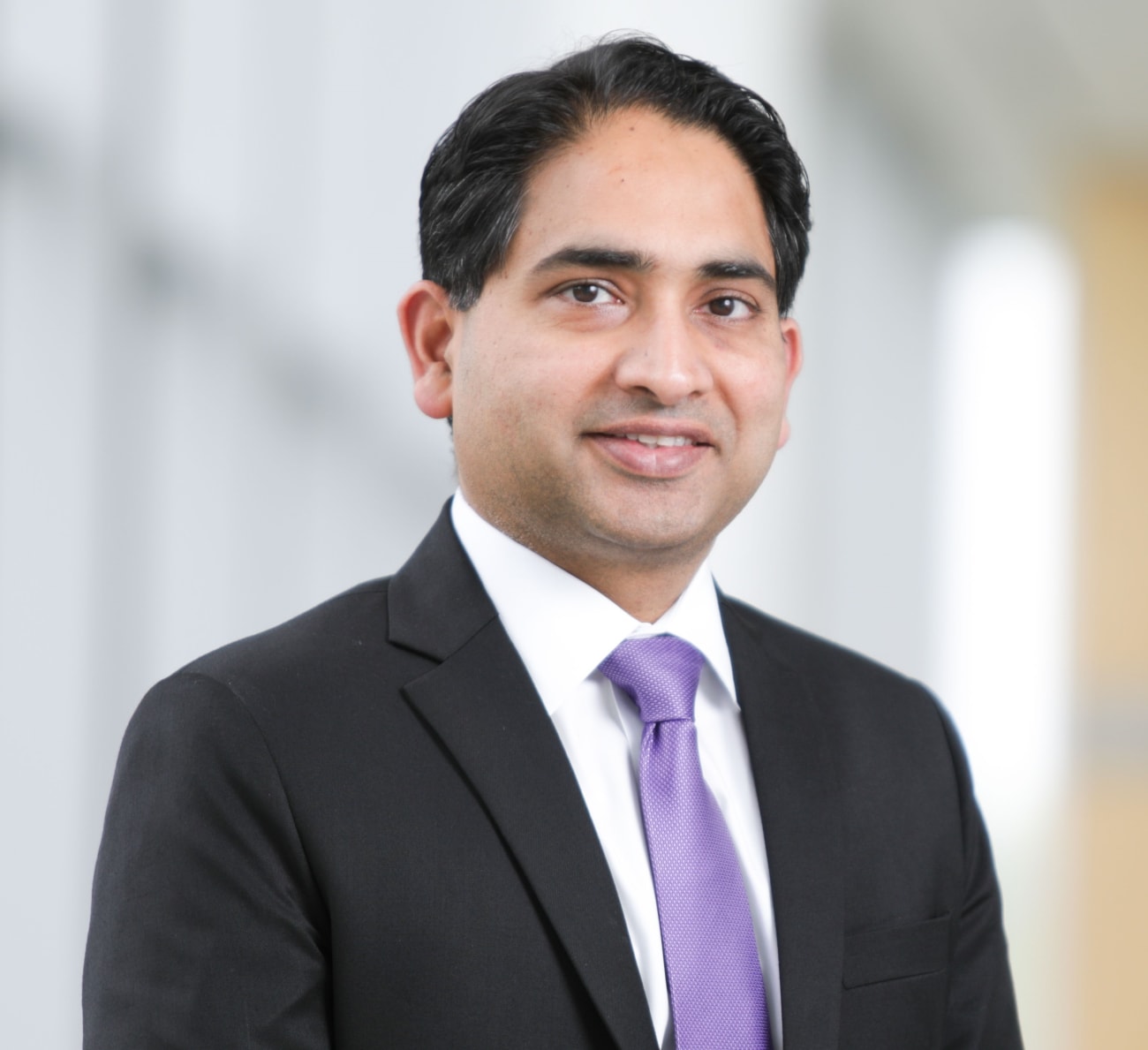
For the nearly 100,000 Americans expected to be diagnosed with a primary brain tumor in 2023, receiving the news will most likely be alarming. Yet physician-researchers at Miami Cancer Institute and Miami Neuroscience Institute, parts of Baptist Health, have reason to be optimistic. Their most promising research - clinical trials that some of their patients are already participating in - could revolutionize the way brain tumors are diagnosed and treated.

Manmeet Ahluwalia, M.D., MBA, FASCO, holds the Fernandez Family Foundation Endowed Chair in Cancer Research, and serves as chief of medical oncology, chief scientific officer and deputy director of Miami Cancer Institute and Baptist Health Cancer Care
Their hopeful message is particularly significant on World Brain Tumor Day, June 8, which is a day designed to raise awareness and pay tribute to brain tumor patients and their families.
“It’s exciting to usher in an era of new opportunities for our patients,” says Manmeet Ahluwalia, M.D., MBA, FASCO, a world authority on brain cancer. He also holds the Fernandez Family Foundation Endowed Chair in Cancer Research, as well as serving as chief of medical oncology, chief scientific officer and deputy director of Miami Cancer Institute and Baptist Health Cancer Care.
“The discoveries that are rapidly occurring wouldn’t be possible without the collaboration between oncologists, neurosurgeons and neurologists, radiation therapists and the entire healthcare team,” says Michael McDermott, M.D., neurosurgeon and chief medical executive at Miami Neuroscience Institute.
Although there are more than 100 types of brain tumors (not all are malignant), at the center of much of the doctors’ combined research is glioblastoma, the most common and most aggressive brain tumor. Typically, patients live just 16 to 18 months after diagnosis.
Among the challenges of treating brain tumors is their location - in the most complex organ of the body. The blood-brain barrier, a layer of cells that protect the brain from harmful toxins and germs, also makes it difficult for some medications, such as chemotherapy drugs, to reach the cancer inside the brain. In addition, biopsies have required an invasive, surgical approach, which always brings risk, discomfort and stress to the patient.

Michael McDermott, M.D., neurosurgeon and chief medical executive at Miami Neuroscience Institute
Drs. Ahluwalia and McDermott are excited about LIBERATE, an international clinical trial they are leading that uses low-intensity focused ultrasound (LIFU) to perform a liquid biopsy of a brain tumor. During LIFU, the blood-brain barrier is temporarily disrupted, allowing tumor DNA to leak into the bloodstream, where it can be detected in a blood test.
Patients in the trial have blood drawn before the procedure. After LIFU, three more blood samples are taken over several hours. The study is hoping “to see at least a two-fold increase in the circulating tumor DNA (ctDNA) of patients with glioblastoma, whether they are newly diagnosed or have recurrent disease,” Dr. Ahluwalia says.
LIFU doesn’t currently offer a therapeutic benefit to patients, but the doctors hope that it will in the future as they are able to identify the ctDNA molecules and make a diagnosis and/or determine the success of therapy. With a liquid biopsy, a patient is also able to receive cancer treatment as soon as the results are available. A surgical biopsy, on the other hand, can require a three- to four-week healing process before treatment can begin.
Another trial available to patients through the Institutes is LIMITLESS, which is for specific patients whose primary non-small cell lung cancer has metastasized to the brain. It is studying the benefit of using LIFU combined with immunotherapy. Teams at both Institutes also work together on clinical trials that use radiation therapy and other technologies to treat brain tumors.
Physician-researchers say that patients who enroll in clinical trials understand that a particular study may not benefit them directly, but they often do so to help others. “I think it offers the patients an opportunity to contribute to medical science and the new information may help their fellow man in the future,” Dr. McDermott says.
The multidisciplinary team approach at Miami Cancer Institute and Miami Neuroscience Institute can also mean quicker progress in using a technology or treatment for other health concerns.
“Outside of the world of oncology, we have had great success using high-intensity focused ultrasound (HIFU) to treat essential tremor. The benefits have been dramatic and instantaneous,” Dr. McDermott says. “The fact that LIFU has the ability to open the blood-brain barrier leads to possibilities for Alzheimer’s patients. We may combine LIFU with new medications to see whether we can get a better response at stabilizing the disease, or reversing some of a patient’s cognitive difficulties, which would be a great improvement for their quality of life. I think it’s a wonderful advance for medicine in several subspecialty areas.”
